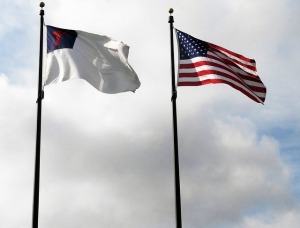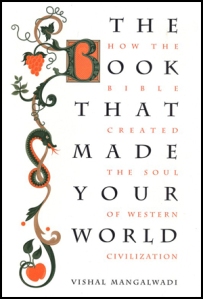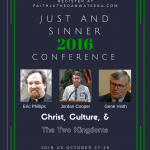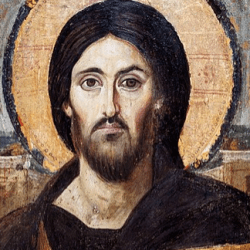
The Lord is king forever and ever;
the nations perish from his land. – Psalm 10
Disclaimer: while the author of this post, Nathan Rinne, always speaks only for himself on this blog, I am keen to re-iterate this when it comes to this thought-piece, which I am proposing to encourage both reflection and debate. If you can make the Just and Sinner conference, you can ask Dr. Veith for me what he thinks about some of these ideas!
+++
Should we be “Cultural Christians”? Even, perhaps, as I am now calling myself, “Liberal Christian Nationalists”?
First of all, some critical definitional notes: by using the word “liberal” I want to capture the sense of “marked by generosity”, or “given or provided in a generous and openhanded way”. Since “progressives” today shy away from this label, I’ll happily re-appropriate it. More, by “liberal” I am not thinking primarily about education (i.e. a “liberal arts education”, “concerned mainly with broadening a person’s general knowledge and experience”), or modern political liberalism (“open to new behavior or opinions and willing to discard traditional values” ; “not bound by authoritarianism, orthodoxy, or traditional forms”), or even classical political liberalism (“associated with ideals of individual especially economic freedom, greater individual participation in government, and constitutional, political, and administrative reforms designed to secure these objectives”). (definitions provided by Google and Merriam-Webster online).
Second, the phrase “Cultural Christianity” is typically used in the Christian circles I know to describe those who would identify as Christian, and would appreciate some of the practices and rituals of Christianity, but do not actually possess faith, or living trust, in Jesus Christ (note: Christians are not to be “fruit checkers”). I am using this word in a sense that does not exclude actual faith, with the intent to emphasize that Christianity also can, and perhaps should, be understood as a culture, i.e “the beliefs, customs, arts, etc., of a particular society, group, place, or time” and “a particular society that has its own beliefs, ways of life, art, etc.” (Merriam-Webster). Ours is a way or form of life (with some diversity in earthly expression) whose origin is given from above, not below.

Fourth, getting to the meat of this short essay and bulleted points for debate, here is my answer to the subtitle of this post: “Yes,” I think, because our sense of identity, who we truly and ultimately are, must – should – necessarily go very deep. Especially, we who are Christians should realize more than most that what is true is deeply bound up with who God is and who we are. We all need a deep sense of cohesion and direction, and we, especially, get this from an identity which derives not only from above, but from a common historical narrative.
I think First Things’ editor R.R. Reno would agree with me about this Christian identity’s close connection with our politics – since in a recent political article provocatively entitled “Nationalism is not Xenophobia,” he goes so far to state that
“We need a Christian nationalism, one that encourages the unity of mankind while recognizing that human beings thrive best as members of a particular people and as proud recipients of a distinctive cultural inheritance.” (hear more about Reno’s views in the latest “First Things” podcast).
For years I have voted mostly Republican, even though there are many things that some Democrats say that make a lot of sense to me as well (of course the “Tea Party” and the “Occupy Wall Street” movements agreed on many critiques of our economic system). I’ve always never really felt at home with either party. My own conviction, I think in line with Reno’s, is that it is simply true to insist that a nation cannot continue to have Western principles and ideals without more explicitly acknowledging, crediting – and ultimately embracing – the predominantly Christian heritage of those countries.

After thinking about this for a good long while, this is my response to the identity politics which the “Alt-Right” is now mimicking: to say that their response to the left highlights the critical aspect of identity. I don’t consider this a betrayal of American ideals, because I think the only way that we have come to have a society where we believe (or used to) that each individual is critical and even has “inalienable rights” is because of Christian – not Enlightenment – influence (though the Enlightenment – like the medieval revival of Aristotle and the Renaissance before it – did force Europe’s Christians to become more reflective and nuanced when it came to the meaning of Christianity). In short, in order to have the rights of the individual elevated in a way that has a basis in reality and “takes”, you need real beliefs that come from Christians – from a “collective” (Gasp! – is this socialism? No.) of Christians! For Christians, who have seen the importance and purchase of the concept of “worldview” (again, see my essay critiquing social constructionism and constructivism) for a while now, none of this really should come to a shock. I think I am just trying to take things a step further.
Given the important link between Christianity and the belief in real human rights as a thing (not in a functional or “useful fiction” sense), it makes sense to me that the Catholic writer Michael Novak would say “Tocqueville famously hinted… that one day [Roman] Catholics would become the best intellectual defenders of the American way of understanding natural rights” (see here). Some Christians who look at America from the outside agree that the Christian worldview – and with this the Christians’ identity – are critical here. The Indian Christian Vishal Mangalwadi made the following claim in his book “The Book That Made Your World”:
“A postmodernist would be absolutely right in insisting that the Declaration of Independence was wrong. These ‘truths’ are not ‘self-evident’. Human equality is not self-evident anywhere in the world – not even in America. Equality was never self-evident to the Hindu sages. For them, inequality was self-evident. Their question was, why are human beings born unequal? Hinduism taught that the Creator made people different. The higher castes were made from his head, shoulders, and belly, and the lower castes were made from his feet. The law of karma accentuated these basic differences. The Buddha did not believe in the Creator, but he accepted the doctrine of karma as the metaphysical cause for the inequality of human beings….
Equality and human rights are not self-evident truths. In his original draft, Thomas Jefferson penned, ‘We hold these truths to be sacred and unalienable.” That was the truth. That is why the Declaration grounded the ‘unalienable’ rights in the Creator rather than in the state. The most honest declaration would have been, ‘We hold these truths to be divinely revealed.’ Revelation is the reason why America believed what some Deists ascribed to ‘common sense.’ To be precise, these truths appeared common sense to the American founders because their sense was shaped by the common impact of the Bible – even if a few of them doubted that the Bible was divinely revealed.” (391, 392)”

I do not think that the majority of politicians who exercise influence in public life reflect on matters to the extent that Mangalwadi does. This goes for our country’s founding fathers as well. I note here that Gregg Frazer, writing in a monograph about the founding fathers of America published by the University of Kansas Press, thinks very few of them were actually Christians. On the other hand, he says that the category of “deist” also does not work for most of them either, as most of them believed in a present and active God (who intervened in history) and also allowed for the existence of some divine revelation, although they also believed that all true revelation would be acceptable to human reason. He says that many of them also show evidence of believing that “all roads lead to God” – God has different names, but it is all the same… For these reasons, he says we need a new category: not deist, not Christian, but “theistic rationalist”. (note: not even a “rationalist theist”). Frazer argues that men like Jefferson and Adams really did believe themselves to be Christians because they actually did appreciate the moral teachings of Jesus. That is what they meant by “Christianity”.
In any case, what this means is that when it comes to politics, I am now moving my most important identity to the front and center: my Christianity. I think I am a “Liberal Christian Nationalist,” and, now that Christians arguably have no real influence in this country – just as they, particularly nationalists, have little influence in Europe (first see here ; then here and here) – this shouldn’t scare anyone.[i] I don’t expect to get too many of my fellow Americans to identify with me in this, nor does it mean I expect to see a LCN party arise. I suspect that the list that I have put together below though – explaining what I mean by “Liberal Christian Nationalism”, might be of more use to countries who are young when it comes to their Christian commitment.
Please note that these points deal with issues of “race” in some detail, since that is, I think, always the elephant in the room and demands thoughtful engagement. Further, in full disclosure, I put together this 32 point list in part in response to a list that the “Alt Right” leader, Vox Day (author of The Irrational Atheist), put together (listen to this interview).
Before jumping into my list, a key point: in my view, the Leftism of today includes many who would consider themselves on the political right. Their philosophy is ultimately deferential to the language used in the 1992 Planned Parenthood vs. Casey decision of the Supreme Court: “At the heart of liberty is the right to define one’s own concept of existence, of meaning, of the universe, and of the mystery of human life.” (of course, logic tells us that “private beliefs” will ultimately only be permitted to be translated into action for some persons – others’ actions will inevitably be determined to be “out of bounds” – see below). A person who is conservative, on the other hand – including those who find room to account for the importance of identity in politics – would continue to agree with the words of the late Russel Kirk – or, perhaps, at least want to agree with him: “[conservatives are] all those people who recognize an enduring moral order in the universe, a constant human nature, and high duties toward the order spiritual and the order temporal.” “Conservatives” who say that what Kirk says is “no longer true” or irrelevant are being anything but conservative. After all, if what Kirk says is no longer true, how was it ever more than an illusion to begin with (given that he speaks of the words “constant” and “enduring” as if these terms mean something)?
My list:
- The history of the world teaches us that the separation of religion and politics is ultimately untenable. Ironically, the possibility of conceiving of a “separation of church and state” could have only taken place in a nation that is largely made up of an influenced by Christians (“give to God what is God’s, to Caesar what is Caesar’s”), who justifiably, at their best, have a reputation for being simple, humble, content, and not apt to glorify strength.
- The Bible is the Word of God. Whoever you are, Jesus Christ is your Creator, your God, your King. This is what Christians have always believed and taught. It is only for the sake of conversation and common ground with the world – all of whom we are to love with Christ’s love – that we might start by talking about how the Bible “contains God’s Word”, “contains the Gospel”, how Jesus is “our God,” or how we consider the Bible to be authoritative.
- If “true patriotism” means “freedom and equality not only for Americans but for all people on earth,” as Eleanor Roosevelt said, one should consider supporting Christian missionaries who share the Gospel of Jesus Christ – His defeat of sin, death and the devil for us through the (unlikely) victory at the cross vindicated by the resurrection – out of sincere conviction and not with any colonial-esque designs.
- Those countries who have attained a high level of political liberty, including freedoms of speech, press, assembly and religion – as well as greater effectiveness, mobility, and choice when it comes to economic issues (made possible by increased trust) – are nations that have been greatly influenced by Christianity.
- Greco-Roman culture, as well as the Renaissance and Enlightenment which drew from it, forced Western forms of Christianity to become much more reflective and nuanced in their understanding of biblical truths. Christianity also seeks to appreciate what is good, true, and beautiful from all cultures (see Philippians 4:8).
- Christians are first and foremost citizens of heaven, not earth. In, but not of the world, their “dual ethnicity” means that they belong first to the kingdom of heaven, and are members of “God’s chosen ethnos” (I Peter 2:9). Though all are one “in Adam,” God has, post-fall, also ordained a diversity of nations (see Acts 17:26), from whom He will obtain worship (Rev. 7:9).
- Biblically, earthly nations are inseparable from the concept of “ethnos,” from which we get “ethnicity”. In like fashion “genos”, from where we get “genes,” can be translated as offspring, family, race, nation, kind, or even sex. We see that these terms involve notions of blood and parentage, even if “ethnos” is more closely connected than “genos” with our notions of culture.
- Ultimately, the Church is a new Nation that re-unites, by faith in Christ, persons not just from this or that race, tribe, or nation, but from the entire human family – making one Nation, or, more accurately, Kingdom, to whom all the earthly nations will stream in the life to come, “Kingdom come”.
- The idea to rather sharply distinguish “church and state” comes from Jesus Christ Himself. He said to “give to God what is God’s and Caesar what is Caesar’s”. It is desirable that the Church and earthly nations support one another even as it is also desirable that each stay out of the other’s core business – the Church forgiving sin and giving eternal life, nations protecting their people while seeking truth and justice.
- It may indeed be better to be governed by a wise Turk than a stupid Christian (mis-attributed to the 16th Church Reformer Martin Luther, though it might seem to sum up his thinking well) though even with this consideration (which seems not to be mindful about continuity), the ideal or preferred persons to lead a nation are, in general, Christians with political gifts – not the leaders of the Church, but Christians nonetheless.
- In contrast to some, there is nothing in the Christian religion that demands we, in our earthly sojourn, must have Christian rulers or even a certain kind of government. If a beloved Christian chieftain or king were to step down to establish a democracy, even with the caveat that the elected ruler must be Christian (e.g. “firm Nicean”) – or at least persons sympathetic to Christianity – it is reasonable to debate whether or not this would, generally speaking, be a responsible move.
- Nevertheless, there is no theological reason, in theory, that a Democratic or Republican (understood classically, not in terms of the American political parties) Liberal Christian Nation should not be desirable – along with the desire to keep it thusly (Ben Franklin: “A Republic – if you can keep it” – see here).
- But if this is the case, here, a “balance of powers” is only one part of the puzzle. Collective theological – and hence cultural – formation must be seen as being absolutely critical: in order to have equality under the law, real respect for the dignity and rights of each individual, a wise degree of cultural tolerance, etc., one must, simply, have Christian teaching. “Liberal Christianity” and their progressive allies are, in fact, parasitical here (see here).
- As “childless men who had forgotten their childhoods” (Bertand de Jovenel), Hobbes and Locke (largely followed by Leo Strauss, the father of “neo-conservatism”) believed the false philosophy that we are by nature “free and independent,” naturally “ungoverned and even non-relational.” (see here) Hypothesizing “states” (personal and corporate!) that are devoid of nationality, ethnicity, and religion is simply unreasonable, and can’t not result in expressions of social Darwinism, glorifying the powerful and attractive, and impatient with, and dismissive towards (or worse) “losers”.
- When it comes to the sexes, the Left has, in essence, rejected fatherhood as a category. Might not the rejection of the notion of “fatherland” by related? (this article is worth pondering) America cannot be “an idea,” however much that statement might force us to consider its seemingly unique qualities.
- As traditional Christian thought and practice loses its hold in areas of the world, Liberal Christian Nations would nevertheless hold to their right to, as the world says, “self-determine” (actually: the right to be who it, by God’s truth and grace, knows itself to be – along with the Church of which it is a part).
- All ethnic groups and the nations that they form must – much like colleges and universities in fact – more or less consciously take deliberate steps to indoctrinate their people into a specific and limited range of acceptable ways of understanding the world (there are always certain views that one and one’s community will determine to be “out of bounds”).
- Charles de Gaulle said that “Patriotism is when love of your own people comes first; nationalism, when hate for people other than your own comes first.” A friend said “Nationalism is pagan worship of the state as an expression of blood and soil European tribalism. It is neither Christian nor conservative. And it isn’t American.” This would not be a Christian understanding of nationalism – the kind that our Christian fathers, including Martin Luther, embraced – which would actually dovetail with what we call “patriotism”.
- “If you love something, you let it be free”. Unlike other religions, God’s Kingdom is “not of this world”, and therefore Christian love – the Church’s love – as it is expressed in the world, begets a political tolerance which may bestow “the right to be wrong”: in one’s heart of hearts, the beloved is absolutely free to reject the Lover of the whole creation (Psalm 145:9) who would help transform their ethnos.
- The hope that all persons would be able to freely express themselves and become the selves and nations they wish to be is true, pure and lovely (Philippians 4:8) – even as it is a hope that simply cannot reasonably be fulfilled in all situations (even secular persons recognize the world embraces very evil ideas).
- Therefore Christians, while still holding to critical norms in their Churches, institutions, and nations, should not only eschew physical force as much as possible (a nation must however, be ruled by moral laws which sometimes need to be enforced by force) and practice forbearance, but can seek to understand – and sympathize with insofar as possible for them (i.e. without sin) – the unbelieving world in its search for identity, security and meaning (see the Apostle Paul in Acts 14 and 17, for example).
- And yet, in their efforts to take a stand, make their voices heard, and influence the wider world that they inhabit, Liberal Christian Nations would have the freedom to directly or indirectly – through artistic, didactic, or political means – confront contemporary voices that promote certain views determined to be “out of bounds” – for their community, and beyond, as determined necessary.
- Nevertheless, the practice of highlighting persuasion through conversation, with a view towards seeking what is true and just, should be the most important tool for a Liberal Christian Nationalist. The significance and real impact of cultural and racial differences (ethnicity) are not ignored, but our common nature as reasoning creatures who can manage to communicate with another and can’t not – at some level at least – be concerned about matters of truth, is highlighted above all.
- For example, those who, shunning simplicity of life, live in pursuit of land-grabbing (e.g. the taking of native’s lands, the Mexican-American war, colonialization and subsequent exploitation, Mohammad’s conquests, etc.) are morally wrong for reasons able to be explored and explained by the Golden Rule. Even as constant retaliation is no answer either (a kind of “statute of limitations” needs to exist here, entrusting final judgment to God).
- In general, societies which show themselves to be both non-land-grabbing and which exhibit long-term endurance must follow the Golden Rule to some extent, and therefore have something to commend themselves (even if we might think that they need significant reform in other areas).
- According to Jason Brennan in the National Interest, “high-information voters favor free trade, globalization, immigration and civil libertarianism,” but clearly, legitimate pros and cons can be identified for each of these issues. By what criteria do we evaluate these things? G.D.P.? Efficiency? Having enough jobs so that wives can make good money as well as husbands? What about the effects on those closest to us?
- For the Christian is to love all, but must ask: how to prioritize my love, i.e. to be concrete when it comes to “doing good unto…”? “Who are my people?” is the key question. Answer: 1. God alone 2. The future heavenly Nation, the Church 3. My family/tribe 4. My immediate neighbors, without respect to race or creed (even as my immigration view might be in some real tension with this) 5. My town/city 6. My country 7. The world – including anyone God throws in my path personally. Ideally, all of these things work together. In reality, difficult decisions – including many we may possibly come to regret – need to be made.
- Likewise, “racism” can be a tricky issue – even trying to be “colorblind,” can be insensitive, and it is foolish to insist to persons adopted from other ethnic groups that the confused feelings they may experience are wholly unwarranted. And if some societies desire, for example, to remain largely ethnically homogenous (e.g. Japan, China, Hungary, etc.) or even religiously homogenous (Saudi Arabia, Israel), does this mean countries who believe that all can and should strive to support more racial and religious diversity should attempt to force their will on these countries through hard or soft power?
- While we all must fight fear of others not just like us, “racist” is a thoughtless slur in our society – definitions are rarely offered. Simply put, racists are those who assert that their biological identify is intrinsically superior to those of others – and subsequently understand reality primarily through this lens (it is their ultimate principle). Believing that something we might loosely call “Western civilization” is, as a whole, better than alternatives – or merely ultimately preferring it to other ways or forms of life – cannot reasonably be called racism.
- If those sharing common genetics are found to possess greater intelligence, artistic ability, strength, beauty – or any other particular quality or combination of qualities – this does not mean they are intrinsically superior in value. The whole is greater than the sum of its parts. In like fashion, good parents and other family members will not even show less love to a child who has a severe disability or, less seriously, lacks other desired qualities.
- All this said, in truth, ethnic diversity is often not a strength and conducive to a society’s flourishing (perhaps, in certain circumstances, it may ultimately end up being so – looking at the origin of the British people, for example?) While a generous act – particularly when addressing dire needs – accepting foreign immigrants may well be to a society’s disadvantage (note the church’s historic teaching on the topic). There are, in fact, many advantages of having a more ethnically homogenous society, starting with the simple ability to communicate, and extending to the convenience offered by shared cultural norms (listen to the discussion here).
- Nevertheless, whatever one’s thoughts about such issues, Christians in particular are to strive, in some fashion at least, to be kind and hospitable to outsiders – and to be mindful of and meditative on the beautiful picture of full reconciliation provided in Revelation 7: “there before me was a great multitude that no one could count, from every nation, tribe, people and language, standing before the throne and before the Lamb.”

FIN
Images: Images: Christian flag from Pixabay (free use) ; Christus Victor: https://adorationlc.org/2014/10/04/christus-victor/
Note:
[i] Discussing the current political situations in America and the list of principles which follows, I said this to an online discussion-partner:
“We are not promised the gates of hell will not destroy America. When I say, I want to retain the country I grew up with, that means retain, while it can be retained, what remains. I think it’s basically over. Conservative Inc. is done. I agree that even if Trump is elected, and stops the flow of cheap labor (and future Democrat voters), the odds that Christian conservatives will be able to gain influence in the “hollowed out” GOP (that Trump wears as a skin) – and then, on top of that, find an appealing candidate who can persuade others of our views – is basically nil… Culture is downstream from politics. Battle is lost. God has judged us as we deserve. Think the BenOp attitudes will become more common, and hopefully a government that does allow some religious liberty. I think what I objected to growing up was the “America is an idea” thing – that seemed strange to me. But I loved America. I don’t even know if I will vote for Trump. My list assumes that things are [politically] over for the American Christians now. It is probably more of a post-mortem reflection assuring me that God is in control, and that there is a better way of thinking about “American experiments” than the more Enlightenment frame (or perhaps even the Madisonian one – I don’t know, not having read enough of him, but I do recall reading a piece pointing out a key deficiency in his theology). As for unity, nationalism – understood to some degree as ethnicity – should unite us (vs the radical individualism)…. I think removing the notion of father [in the family] is indeed the problem, but perhaps, that downplaying, ignoring, or denying the notion of fatherland (not necessarily an idol) in favor of the nation being an idea, is connected….”












